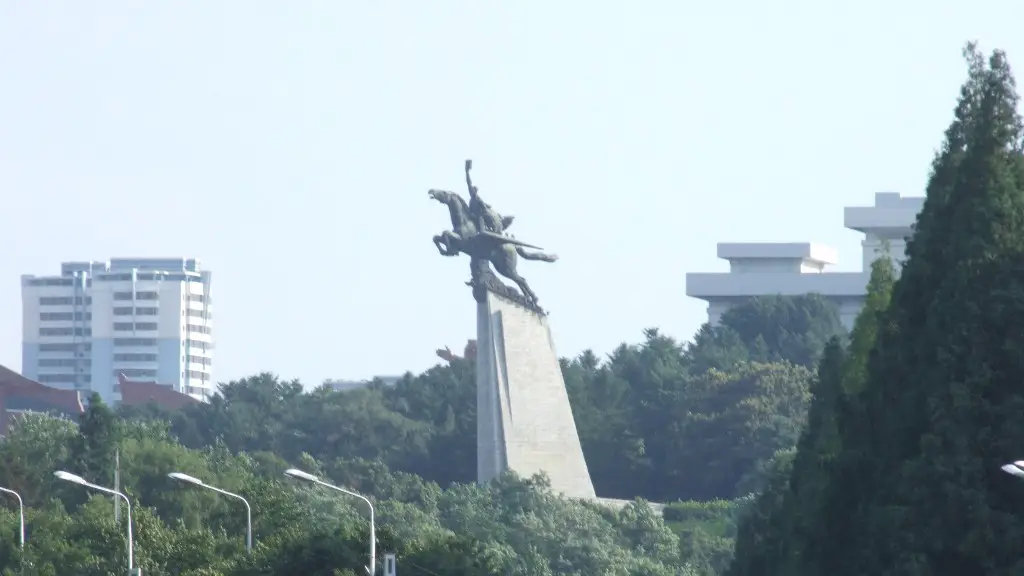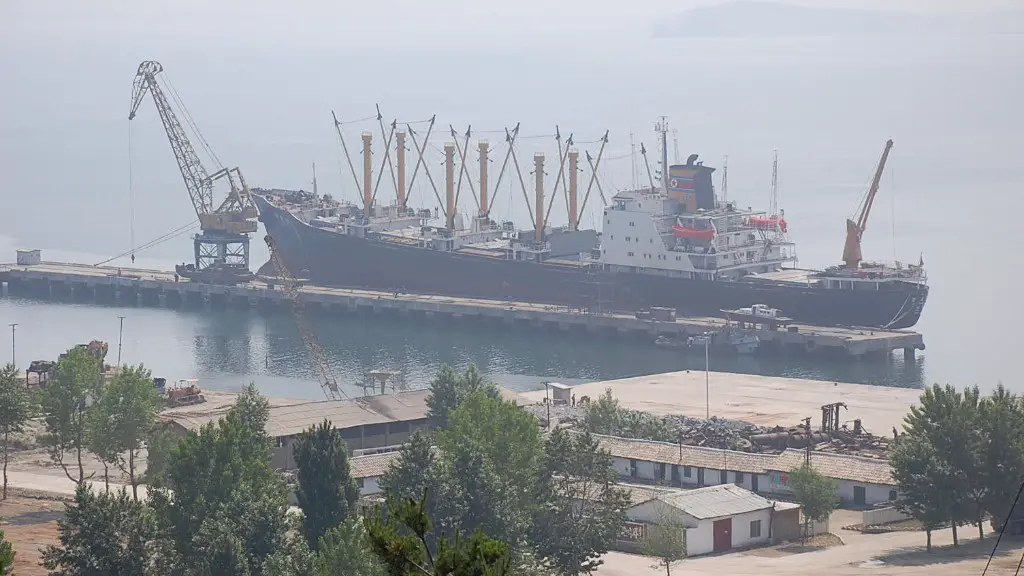Section 1
The prospect of a war with North Korea has long been a fear of the United States and many of its allied neighbors. With the current geopolitical situation, tensions have been high and the potential for such a conflict has risen significantly. North Korea is one of the most isolated countries in the world and is recognized by most in the international community as a hostile, oppressive regime. This has led to the potential for a conflict to become a reality should North Korea continue to develop and develop further its military capabilities.
To get a better understanding of how a war with North Korea would be, it is important to look at North Korea’s current capabilities. North Korea has a large military force, with over one million standing troops and an estimated 4,200 tanks. Additionally, North Korea has a large arsenal of nuclear and conventional Ballistic Missiles, and is believed to have a stockpile of chemical weapons.
North Korea also has a cyber-warfare unit, which is estimated to be four-thousand strong. This unit has already been implicated in numerous cyber-attacks against the United States and its allies, so a more direct conflict could be disastrous. The ability of North Korean hackers to access and manipulate data is something the United States must take seriously in the event of a war.
Due to the hermit state’s nature, North Korea is quite difficult to predict in terms of a war. They have a large quantity of weapons, but often lack the latest technology, making them predictable in some ways but unpredictable in others. This aspect can make conflict with North Korea much more complex than many other potential conflicts.
Section 2
The consequences of a war with North Korea would depend on a great number of variables, and it is difficult to predict with any certainty what would happen. That said, a conflict could result in catastrophic damage in both North Korea and the rest of East Asia. One of the major concerns is that North Korea could launch a nuclear weapon if it were to come under attack, as it is estimated to have dozens of nuclear weapons. This would not only devastate North Korea, but also its neighbors and potentially even the United States.
Furthermore, should North Korea resort to cyber-attacks, it could lead to devastating disruptions in economies and the power grid, leaving millions in peril. Such an attack could also lead to massive economic damage to the United States and its allies, as well as a destabilization of the region.
Though the war would certainly have untold consequences, experts believe that the conflict itself would last a relatively short time. It is believed that the North Korean military would be unable to stand up to the forces of the United States and its allies, and would either surrender or be defeated within months. Despite this, the aftermath of such a conflict would surely be long-lasting and profound.
Section 3
The economic implications of a war with North Korea would be grave. The United Nations estimates that the economic losses resulting from such a conflict could total up to two hundred billion dollars, and would cause untold damage to the already precarious economies in East Asia. Not only would such a conflict lead to the loss of jobs, but also a severe disruption of global supply chains, which would have dire consequences for the world economy.
In terms of lives lost, it is hard to estimate the number of casualties that would occur. North Korea’s military is large, but poorly equipped and trained, and would be at a severe disadvantage in any conflict. Despite this, North Korea has the ability to use its weapons of mass destruction, which could lead to untold numbers of fatalities.
Furthermore, the political implications of a war are hard to predict. It is possible that North Korea could collapse as a result and would need to be reconstructed. This could take decades and would be fraught with difficulty and complexity, as North Korea has been so isolated for so long. A re-unification of North and South Korea would also be difficult and potentially cause further dynastic and economic instability in the region.
Section 4
Though the idea of a war with North Korea may seem unlikely, the potential for such a conflict is real and must be taken seriously. It is essential that the United States and its allies work together in de-escalating the situation and finding diplomatic solutions. The costs of a conflict would be incredibly high, and it is not something the world should seek out.
Though North Korea’s military capabilities must be taken seriously, there are strategies to counter them. The United States and its allies have a great deal of knowledge and capabilities that could be used to counteract North Korea’s weapons. Through unconventional strategies such as this, a conflict with North Korea may be avoided.
At the same time, sanctions have been used to increase the pressure on North Korea to de-escalate its military operations. This has had some success, as North Korea has reduced its military activities in recent years. It is possible that sanctions may continue to be an effective tool in avoiding a conflict.
Section 5
In terms of preparing for a potential conflict, the United States and its allies must take a number of steps. The first is to ensure that the United States’ missile defense systems are up-to-date and ready for use. This would give the United States and its allies more time to respond to any attacks from North Korea. Additionally, the United States and its allies must ensure that they are ready to respond to a nuclear or cyber attack from North Korea, and have the necessary defenses in place.
Furthermore, the United States and its allies must be prepared to provide aid to those areas affected by a conflict. This would include aid both in terms of medical and food supplies, as well as humanitarian support. The potential for a conflict can be reduced if the United States and its allies are seen to be acting in a humanitarian capacity.
Finally, the United States and its allies must also be prepared to engage in a public information campaign. This includes informing the public of the potential consequences of a conflict and of the effort to de-escalate the situation. This information should be made available to the public to better inform people of the situation and ensure that diplomatic solutions are sought.
Section 6
The United States and its allies must also advance their understanding of the internal dynamics of North Korea. Though the country remains largely a mystery to the outside world, there is increasing information available on the internal workings of the country. Through better understanding of this, the United States and its allies can better engage in diplomatic solutions.
Additionally, the United States and its allies must continue to advance their cyber-security measures. As previously mentioned, North Korea has a large cyber-warfare unit, and it is essential that the United States and its allies prepare for their potential attacks. This includes investments in secure networks and ensuring that systems have the latest updates.
Finally, the United States and its allies must be prepared to use non-conventional means to de-escalate the situation, such as back-channel discussions and the use of non-traditional diplomacy. By engaging in such tactics, the US and its allies can work towards de-escalating the situation while avoiding the use of force.
Section 7
Though diplomacy and sanctions have had some success in reducing the potential for a war with North Korea, the risk remains very real. It is essential that the United States and its allies remain vigilant and continue to push for diplomatic solutions. Expansion of understanding of the internal dynamics of North Korea is essential, and must continue.
Furthermore, the United States and its allies must remain prepared for a conflict and ensure that appropriate measures are taken should a war become reality. This includes preparing for cyber warfare and advancing defenses against ballistic missiles. Finally, they must be prepared to provide aid to those affected by the conflict, and to engage in the public information campaign necessary to inform the public of the potential consequences of war.
Though the potential for a war with North Korea is real, the consequences are too dire for it to be allowed to happen. The United States and its allies must continue to search for diplomatic solutions and work together to ensure that war is avoided.

